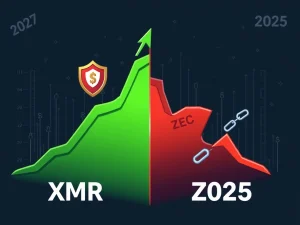Solana Staking: Corporate Giants Unlock Lucrative Rewards

A significant shift is underway in corporate finance. Public companies are increasingly turning to Solana (SOL) for a compelling reason: **Solana staking** rewards. This emerging trend signals a new era for digital assets within traditional corporate treasuries. Firms are actively acquiring substantial amounts of SOL, aiming to generate passive income through network participation. This move highlights Solana’s growing appeal as a strategic asset, moving beyond mere speculation.
Solana Treasury Holdings Soar: A New Corporate Trend
The **Solana treasury** race is heating up, with several public companies significantly increasing their holdings. This week alone, three prominent firms announced major acquisitions of Solana tokens. This surge indicates a strategic pivot towards yield-generating digital assets.
Firstly, Bitcoin mining firm Bit Mining made its inaugural **SOL investment**. On Tuesday, the company purchased 27,191 SOL, valued at $4.5 million. Furthermore, Bit Mining launched a dedicated validator to earn yield by staking these newly acquired tokens. This action marks a clear intent to integrate deeply with the Solana ecosystem.
Secondly, Upexi, a brand owner specializing in supply chain management, also reported substantial growth in its Solana portfolio. Upexi spent most of July actively buying Solana. Its holdings expanded dramatically from 735,692 tokens at the end of June to over 2 million SOL currently. This rapid expansion underscores the company’s strong conviction in Solana’s potential.
Thirdly, DeFi Development Corp. announced a significant increase in its crypto holdings. The firm now controls over 1.2 million SOL, having recently acquired an additional 110,466 tokens. This consistent accumulation demonstrates a long-term commitment to Solana.
CoinGecko noted on Tuesday that these recent buys highlight “a growing trend of Solana exposure among public firms.” The top four Solana-holding companies now control over 3.5 million tokens. This impressive figure represents more than $591.1 million, constituting nearly 0.65% of the total SOL circulating supply.
Why Public Companies Prioritize SOL Investment
The primary catalyst for these substantial **SOL investment** decisions is the attractive yield offered by staking. A June 18 report by crypto company BitGo speculated that firms are adding Solana to their treasuries specifically for these staking rewards. Additionally, they aim to differentiate themselves in a market increasingly saturated with Bitcoin (BTC) adopters.
BitGo emphasized the evolving landscape of corporate treasury management. “Bitcoin integration into corporate balance sheets challenged traditional treasury thinking,” BitGo stated. It signaled “digital assets’ transition into a legitimate institutional asset class.” Solana, however, offers an added dimension.
Companies adopting Solana gain exposure to reward-generating digital assets. They also align strategically with emerging blockchain infrastructure. This allows them to differentiate themselves in the marketplace. For instance, Upexi CEO Allan Marshall confirmed that July was a “game-changing month” for his company. After raising over $200 million for additional SOL purchases, Upexi significantly increased its holdings. The firm staked most of its SOL, which Marshall said earned an 8% yield. This yielded an impressive $65,000 per day in revenue, showcasing the direct financial benefits of **crypto staking rewards**.
Unlocking Crypto Staking Rewards: The Mechanics and Benefits
The allure of **crypto staking rewards** drives this corporate interest. Staking involves locking up cryptocurrency holdings to support the operations of a blockchain network. Participants, known as validators, verify transactions and add new blocks to the chain. In return for their service, they receive newly minted tokens or transaction fees as rewards. This mechanism not only provides a passive income stream but also contributes to the network’s security and decentralization.
Bit Mining’s decision to launch its own Solana validator underscores its long-term vision. This action indicates a deep commitment to participating directly in the network’s infrastructure. Furthermore, DeFi Development Corp. plans to stake its SOL holdings with various validators. This strategy maximizes their earning potential while diversifying their staking exposure. The ability to generate consistent yield from digital assets transforms them into productive treasury assets, rather than just speculative holdings.
The yield generated from staking offers a compelling alternative to traditional low-interest investments. This makes Solana an attractive option for companies seeking to optimize their balance sheets. The predictable revenue stream from staking provides financial stability and growth opportunities.
Bit Mining’s Bold Move into the Solana Ecosystem
Bit Mining’s strategic shift into the **Solana ecosystem** represents a significant endorsement of the blockchain’s future. The company announced its plans on July 10. It aims to raise up to $300 million to build a dedicated Solana token treasury. This move signals a diversification beyond their traditional Bitcoin mining operations.
Bo Yu, Bit Mining chairman and chief operating officer, articulated the company’s vision. He stated that their first self-operated validator marks the beginning of a broader effort. They aim to build a strong presence across the Solana ecosystem. “It demonstrates our belief in Solana’s potential and our commitment to building meaningful infrastructure that supports its growth, security, and decentralization,” Yu added. This strategic investment positions Bit Mining as a key player in Solana’s institutional adoption, highlighting confidence in the network’s scalability and robustness.
The Intense Race for Public Companies’ Solana Exposure
The competition among **public companies Solana** holdings is intensifying. According to CoinGecko, Upexi currently leads the Solana treasury race. DeFi Development secures the second position. SOL Strategies, a Canadian public company focused on Solana infrastructure, rounds out the top three. This competitive landscape underscores the growing recognition of Solana’s value proposition.
The increasing corporate adoption coincides with significant network improvements. Solana block capacity, for example, has increased by 20%. There is even a proposal for it to go even higher. Such technical advancements enhance the network’s ability to handle more transactions efficiently. This further strengthens its appeal to institutional investors seeking reliable and scalable blockchain solutions. The collective actions of these companies reflect a broader market sentiment. They see Solana as a foundational layer for future decentralized applications and financial services. This positions Solana as a crucial player in the ongoing evolution of corporate digital asset strategies.










